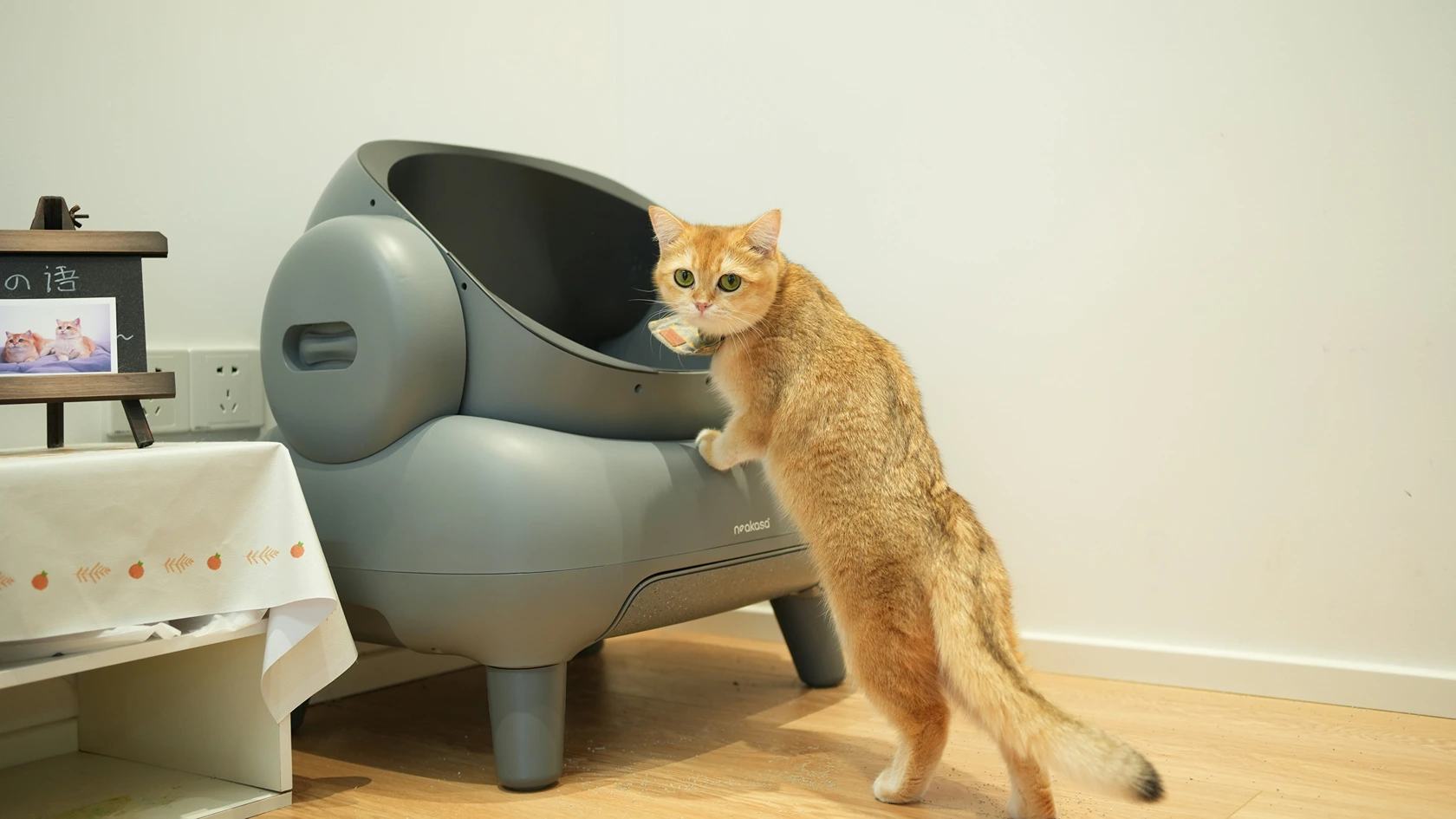TL;DR: What You Need to Know About Cat Diarrhea
- Types matter: Acute Diarrhea is often short-lived, while chronic or recurring Diarrhea signals deeper health issues that need a vet’s care.
- Common causes: Dietary changes, parasites, bacterial imbalance, stress, foreign object ingestion, or chronic conditions like inflammatory bowel disease.
- When to call the vet: Blood in stool, loss of appetite, severe lethargy, fever, dehydration, or emergency signs like painful straining or blockages.
- At-home care: Provide hydration, bland diet, stress-free rest, and monitor litter box changes—never give human meds without vet approval.
- Prevention tips: Keep diet consistent, reduce stress, maintain parasite prevention, prioritize hygiene, and schedule regular wellness checks (especially for seniors).
Concern about your cat's Diarrhea? Reach out to us for proper guidance and care. We’ll help you understand what’s normal and create a tailored plan to get your cat back to feeling healthy and comfortable.
Do you notice changes in your cat's bathroom habits lately? When a cat is experiencing Diarrhea, it can be stressful for both the cat and the owner. While a single episode of Diarrhea is often likely not a cause for concern in healthy adult cats, repeated or severe episodes may signal a serious underlying health issue.
Because Diarrhea is not a disease but a common symptom of many conditions, knowing what’s normal, when it becomes a serious concern, and when to contact your vet right away is important. In this post, we’ll share with you the common causes of Diarrhea in cats, when it’s time to call the vet, and practical tips you can use at home to support your cat’s recovery.
Types and Signs of Cat Diarrhea

Not every case of cat diarrhea is the same. Some are mild and clear up quickly, while others are more serious and may need your cat to be seen by a vet. Cases of acute Diarrhea usually show up suddenly, last only a short while, and often improve without much treatment. But when a cat with Diarrhea has ongoing or recurring issues, it’s often a sign of something deeper that requires veterinary care.
Acute Diarrhea: This type comes on fast and usually doesn’t stick around. Stress, a quick change in diet, or your cat sneaking a bite of something unusual are common triggers. Many mild bouts of Diarrhea in otherwise healthy cats pass on their own, but if you notice blood, frequent vomiting, or unusual tiredness, it’s best to have your cat seen by a vet.
Chronic Diarrhea: Chronic Diarrhea doesn’t just go away—it lingers for weeks or keeps coming back. This usually points to underlying problems like parasites, food sensitivities, or conditions such as inflammatory bowel disease. A cat with Diarrhea that continues this long won’t get better without proper treatment, so a vet’s guidance is key.
Other signs include:
- Diarrhea happening more often than usual
- Noticeable changes in stool colour or odour
- A cat with Diarrhea showing odd behaviours like hiding, restlessness, or less grooming
Even mild bouts of Diarrhea in otherwise healthy cats are worth monitoring. Paying attention to how long it lasts and whether other symptoms show up helps you know when it’s time for your cat to be seen by a vet.
Common Causes of Diarrhea in Cats
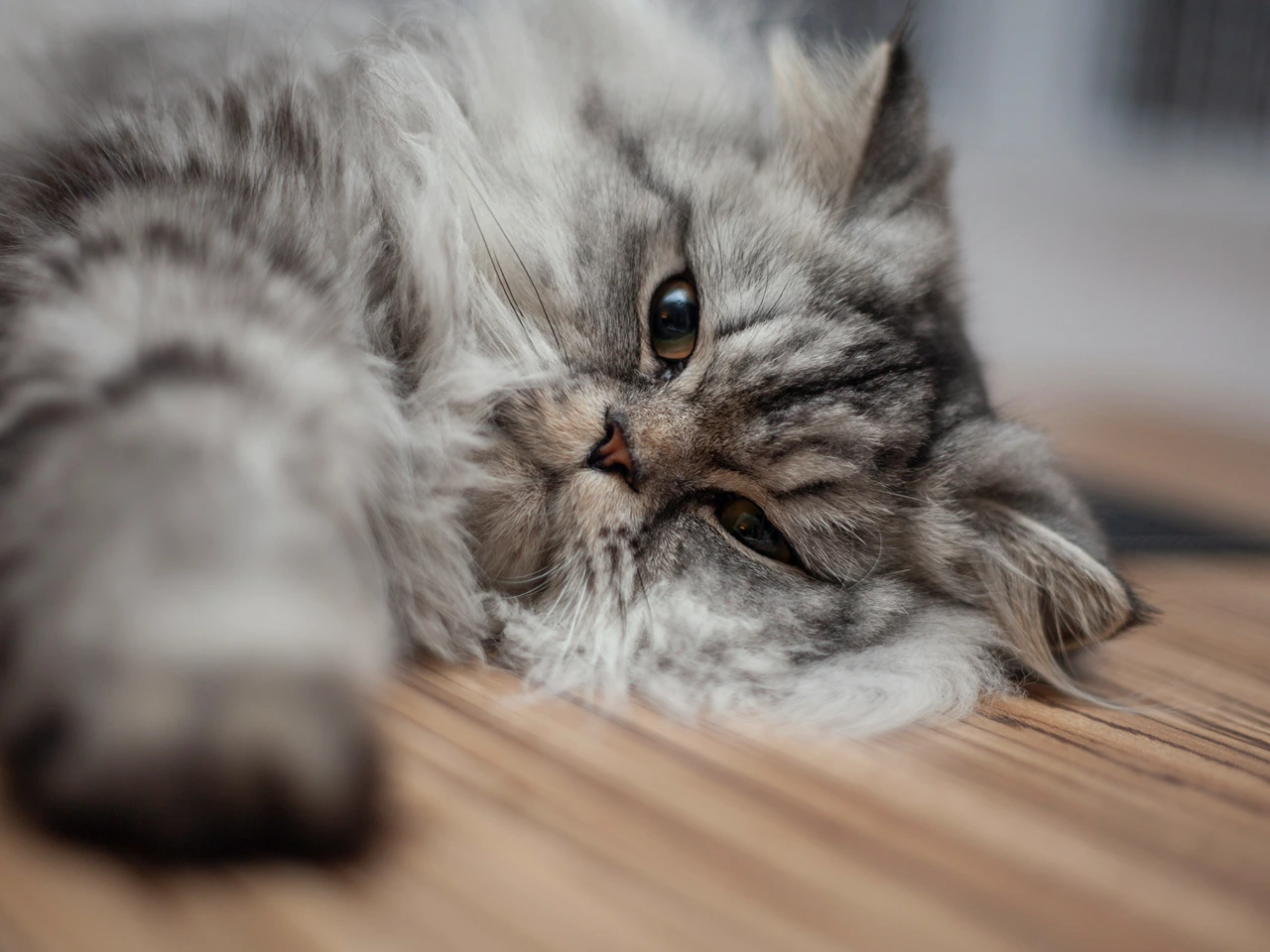
There are many common reasons why a cat might have Diarrhea, ranging from something simple to more serious health issues. When vets discuss the common causes, it helps pet owners better determine the underlying cause and know when professional care is needed.
Some of the most frequent triggers include:
Dietary Changes or Food Sensitivities
A sudden switch in diet or allergies in cats is among the top common reasons for digestive upset. Even otherwise healthy cats may react poorly to a new food, leading to loose stools.
Parasitic Infections
Parasites are seen frequently in younger cats, and intestinal worms are a major culprit. They can disrupt digestion, causing Diarrhea, weight loss, and a generally unwell appearance.
Bacterial Imbalances
The GI tract, resulting in Diarrhea, can sometimes be traced to harmful bacteria or an overgrowth of normal gut bacteria. These infections upset the balance in the digestive system, often leading to ongoing issues.
Inflammatory Bowel Conditions
Cats with chronic digestive problems may be dealing with inflammatory bowel disease. This condition doesn’t just cause ongoing Diarrhea, it can also stop your cat from absorbing nutrients properly, which may leave them weak or underweight.
Stress-Related Factors
Just like us, cats can show stress in physical ways. Sometimes an anxious or unsettled cat will get a short bout of Diarrhea, but it usually clears up once things around them feel calmer and more predictable.
Foreign Body Ingestion
When a cat swallows something, it shouldn’t—like string, plastic, or other non-food items—it can irritate or block the intestines. This can lead to Diarrhea or, in more severe cases, a painful obstruction that requires urgent vet care.
When to Contact Your Veterinarian
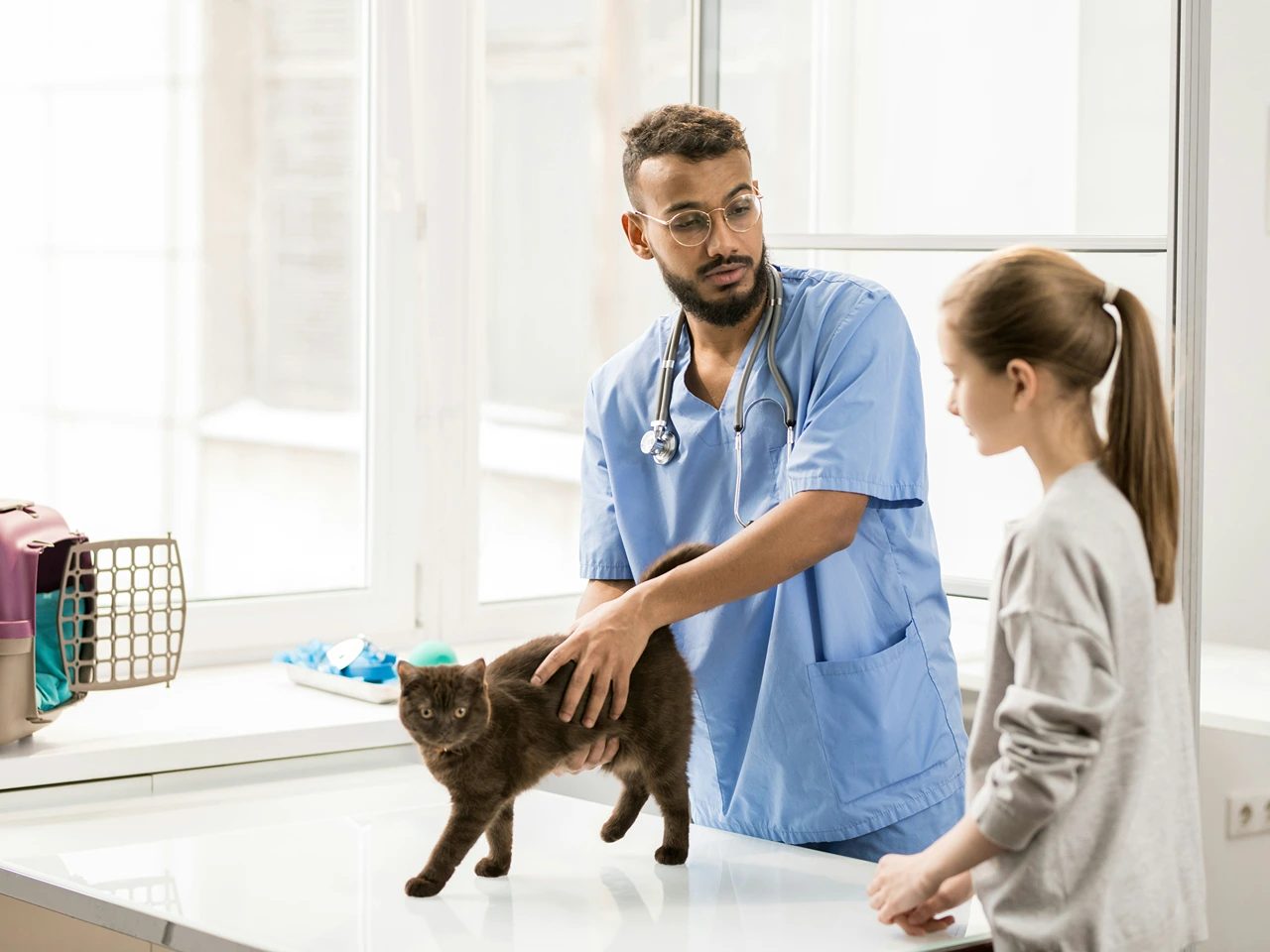
Not every episode of Diarrhea is an emergency. In many cases, if your cat has Diarrhea but is otherwise acting normal, playful, and eating, you can monitor them for about a day. However, there are certain red flags that mean your cat’s Diarrhea will require professional attention. If you notice the following symptoms, contact your vet right away:
- Blood in Stool: Even small streaks of blood can indicate irritation, infection, or something more serious in the digestive tract.
- Severe Lethargy: A cat that seems extremely weak, withdrawn, or unable to stay active is showing a warning sign that should not be ignored.
- Loss of Appetite: Skipping meals along with Diarrhea may point to illness beyond a simple stomach upset.
- Fever Symptoms: Warm ears, a hot body, or general malaise paired with Diarrhea often suggest infection.
- Dehydration Signs: Look for sunken eyes, dry gums, or skin that doesn’t bounce back quickly when gently lifted—these are classic signs of fluid loss.
- Emergency Situations: Some cases need urgent care, such as a cat passing small amounts of watery Diarrhea, straining to pass a stool, or experiencing a painful blockage.
In these cases, it’s best to call your vet as soon as possible or go to the nearest emergency animal hospital for care.
What to Do When Your Cat Has Diarrhea
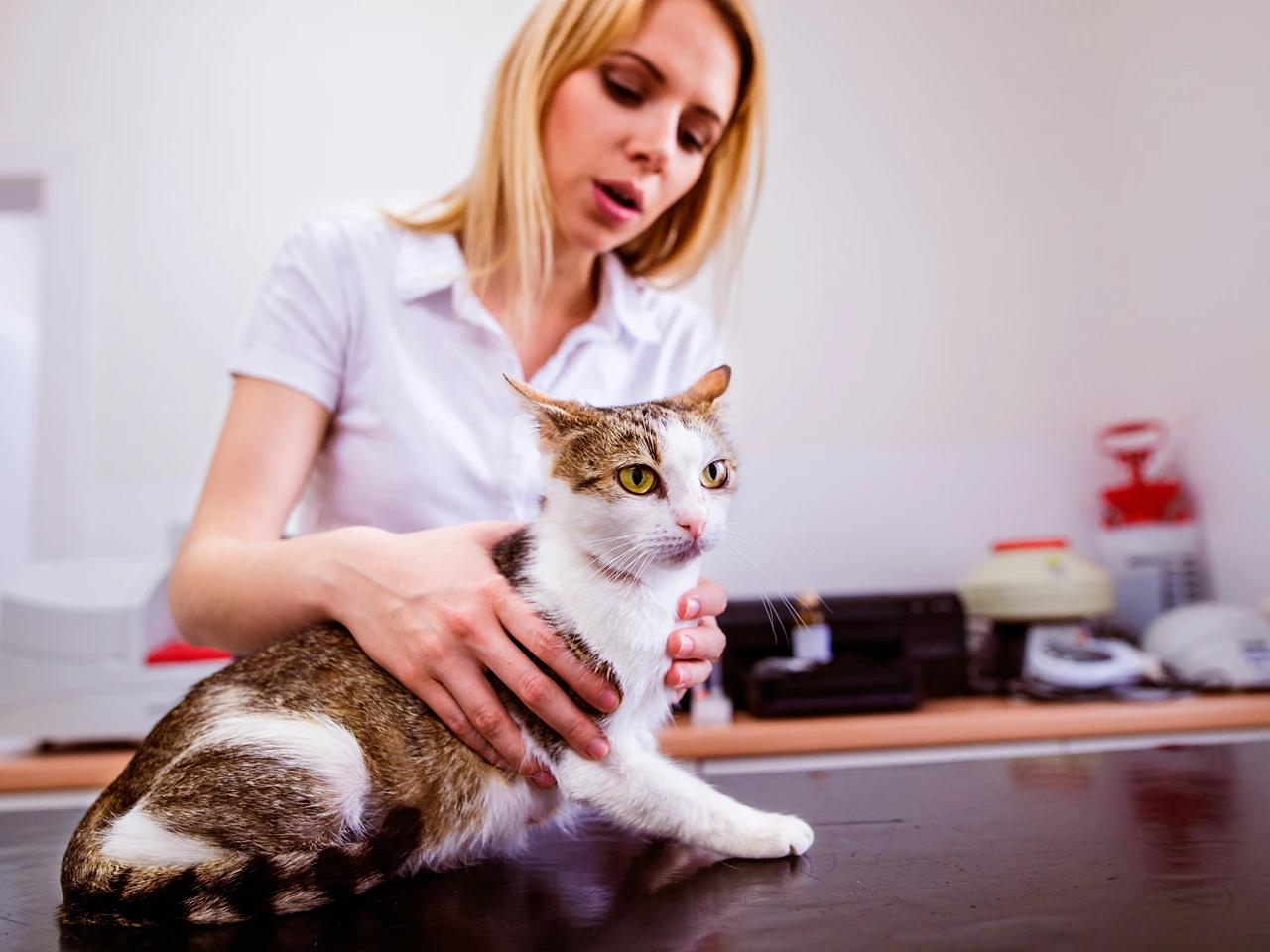
If your cat is suffering from Diarrhea, there are a few supportive steps you can take at home while carefully monitoring their recovery. These measures can make your cat more comfortable and help you decide whether professional care is needed.
- Dietary Modifications: Mild cases of Diarrhea are sometimes eased by feeding a bland, easily digestible diet for a short time. Gradually reintroducing their regular food helps avoid further stomach upset.
- Hydration Maintenance: Because Diarrhea may also cause fluid loss, make sure your cat always has access to fresh, clean water. In some cases, an electrolyte solution recommended by your vet can help keep hydration levels stable.
- Litter Box Monitoring: Keeping an eye on the litter box lets you see if stools are improving, staying the same, or getting worse. Noting frequency, texture, and changes can provide helpful details for your vet.
- Rest and Comfort: Give your cat a quiet, stress-free space to recover. Reducing stress is important, as it can sometimes trigger or cause Diarrhea in cats.
- Environmental Adjustments: Maintaining a clean, calm environment helps your cat feel secure and prevents added strain while they are recovering from digestive issues.
- Medication Administration: Never give over-the-counter or human medication on your own, as many can be dangerous and even cause Diarrhea. Your vet will let you know whether medication is needed, and if so, let you know whether it should be continued long term or only for short relief.
Vet Tips for Prevention and Long-Term Management
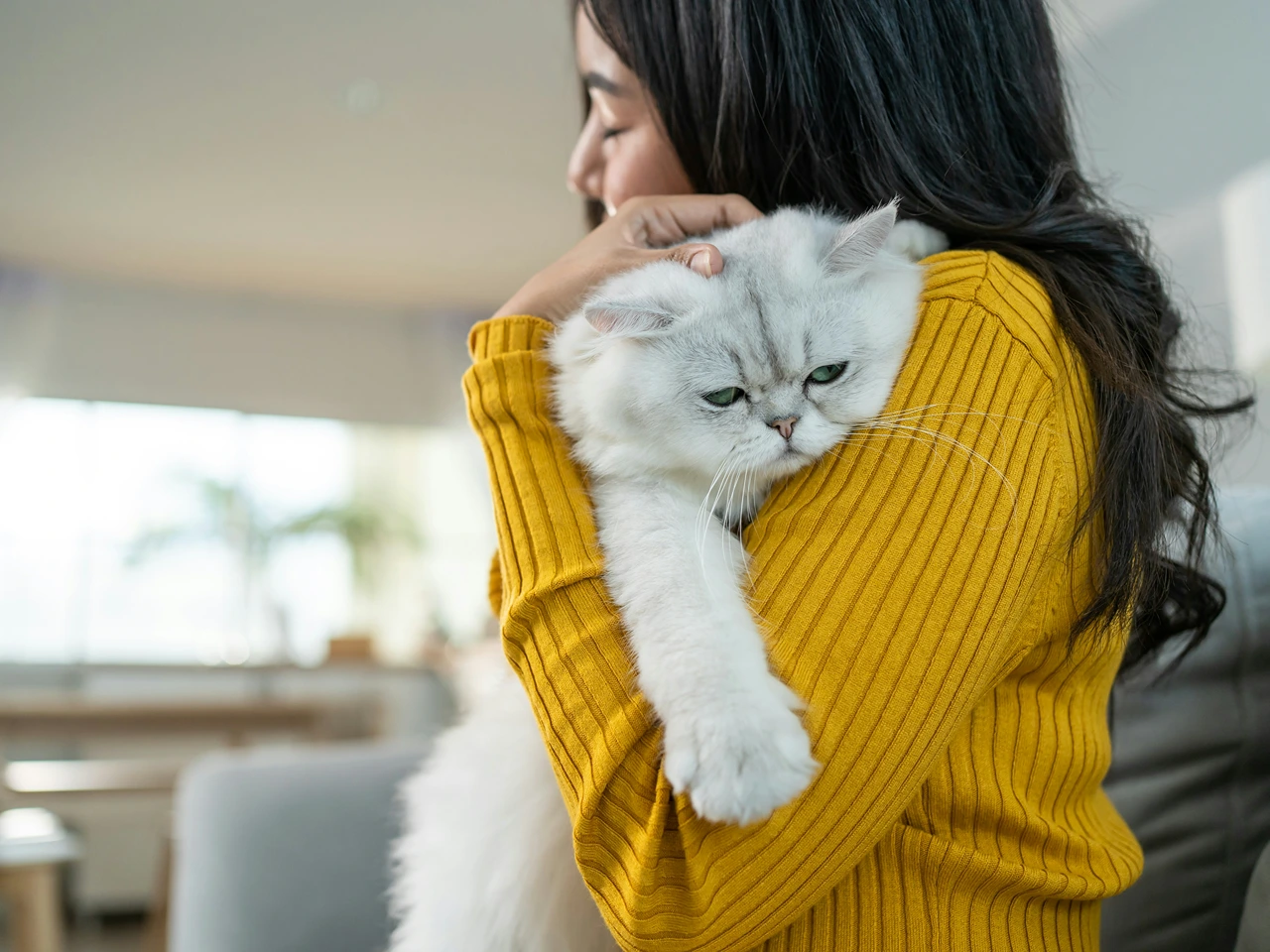
Once your cat has recovered from Diarrhea, the next step is focusing on prevention and long-term care. Think of it as setting your cat up for fewer tummy troubles down the road.
Regular Wellness Checks
Routine vet visits are like a tune-up for your cat—they help catch serious concerns and needs early, making treatment easier and more effective if something comes up.
Diet Consistency
Cats don’t usually do well with sudden food switches. Keeping meals consistent helps avoid digestive upset in cats and makes their system a lot happier.
Stress Reduction
Believe it or not, stress can upset a cat’s stomach. Minimizing changes at home—or introducing them slowly—goes a long way in preventing those stress-related moments when a cat may have Diarrhea.
Parasite Prevention
Never skip parasite control. Infections can also cause Diarrhea, and preventive treatments save your cat from discomfort (and save you from extra clean-ups).
Environmental Hygiene
A clean litter box and feeding area aren’t just nice to have—they also cut down on bacteria and germs that could lead to stomach problems.
Health Monitoring Routine
Get in the habit of noticing changes in appetite, energy, or bathroom habits. These little clues help you and your vet stay ahead of issues.
Special Considerations for Senior Cats
Older cats are more prone to digestive changes, and a senior cat may have Diarrhea more easily as their system becomes sensitive with age. Medications can also play a role, since some prescriptions upset the stomach. Chronic conditions such as thyroid or kidney issues may trigger recurring Diarrhea, making steady management important.
To make things easier, special diets for senior cats can support better digestion, while regular check-ups help catch any health issues early—giving your cat the best chance at staying healthy long-term.
Final Thoughts
If your cat is experiencing Diarrhea, monitor closely, keep them comfortable, and don’t hesitate to contact your vet right away if you see warning signs. Diarrhea may seem like a small issue at first, but because it can be caused by so many different factors—ranging from diet changes and stress to infections or chronic conditions—it’s always better to stay cautious.
Acting quickly helps prevent dehydration and ensures your cat gets the right treatment if something serious is going on. With the right approach, most cats often recover quickly, while others may need long-term veterinary care to manage Diarrhea safely.
Frequently Asked Questions
What can cause Diarrhea in cats?
Diarrhea in cats is a common condition that may arise from several different sources.
Dietary issues: Sudden changes in food or food intolerances can cause Diarrhea, and it can also happen if your cat eats something unusual.
Parasites and infections: Intestinal worms, bacteria, and viruses are common reasons that can cause Diarrhea.
Toxic substances: Certain plants, spoiled food, or household cleaners that contain toxins can also cause Diarrhea if ingested.
Stress and lifestyle changes: Cats tend to experience digestive upset when stressed by travel, moving, or environmental changes.
Medical conditions: Recurring Diarrhea over a short period can signal problems such as inflammatory bowel disease or thyroid issues.
When should I call a vet about my cat’s Diarrhea?
It’s generally a good idea to contact a professional if your cat’s symptoms persist or worsen.
Persistent cases: Repeated bouts of Diarrhea lasting more than a day or two should be taken seriously.
Serious symptoms: Severe Diarrhea with lethargy, blood, or vomiting needs immediate attention.
Accidents in the house: If your cat suddenly starts having accidents outside the litter box, it may mean the problem is worsening.
Changes in stool size: Passing stool but only passing small amounts may suggest an obstruction or straining.
When to escalate: It’s best to see a veterinarian if your cat is very young, elderly, or dealing with other health problems.
What should I do at home if my cat experiences Diarrhea?
There are several steps you can take at home to help your cat feel better.
Provide hydration: When a cat experiences Diarrhea, replenishing fluids is vital to prevent dehydration.
Gentle diet: Offer bland, easily digestible food until the stomach settles.
Observation: Note how often Diarrhea occurs in the litter box to track progress.
Comfort and rest: Minimize stress and give your cat a calm, clean space.
Warning signs: If other symptoms, such as weakness, vomiting, or appetite loss, are also present, seek professional help.
How can I prevent future diarrhea episodes in my cat?
Prevention often comes down to proper care, diet, and environment.
Consistent feeding: Maintain a stable diet and avoid sudden changes in your cat’s food, as abrupt shifts can upset their digestive system and trigger Diarrhea.
Eliminate hazards: Keep cleaning products, toxic plants, and other harmful substances out of your cat’s reach, since ingestion of these can lead to digestive upset and Diarrhea.
Routine care: Regular checkups are important. Diarrhea will require a visit if linked to hidden conditions.
Parasite prevention: Protect against worms and other parasites, as these can cause Diarrhea.
Quick response: If you notice early signs, you should contact a vet right away to make sure it doesn’t escalate.
Can Diarrhea indicate a serious health condition?
Sometimes, Diarrhea points to underlying problems that need veterinary care.
Digestive disorders: Chronic problems may indicate inflammatory bowel disease, where cats struggle with absorption.
Liver or kidney disease: Organ issues can cause Diarrhea and also occur with other warning signs.
Infections and parasites: Severe infections or parasite infestations may cause Diarrhea along with fatigue or vomiting.
Age factor: Older cats are more vulnerable, and the severity of Diarrhea depends on their overall health.
Professional guidance: Since causes vary, it’s generally a good idea to contact a vet to get the right diagnosis.

